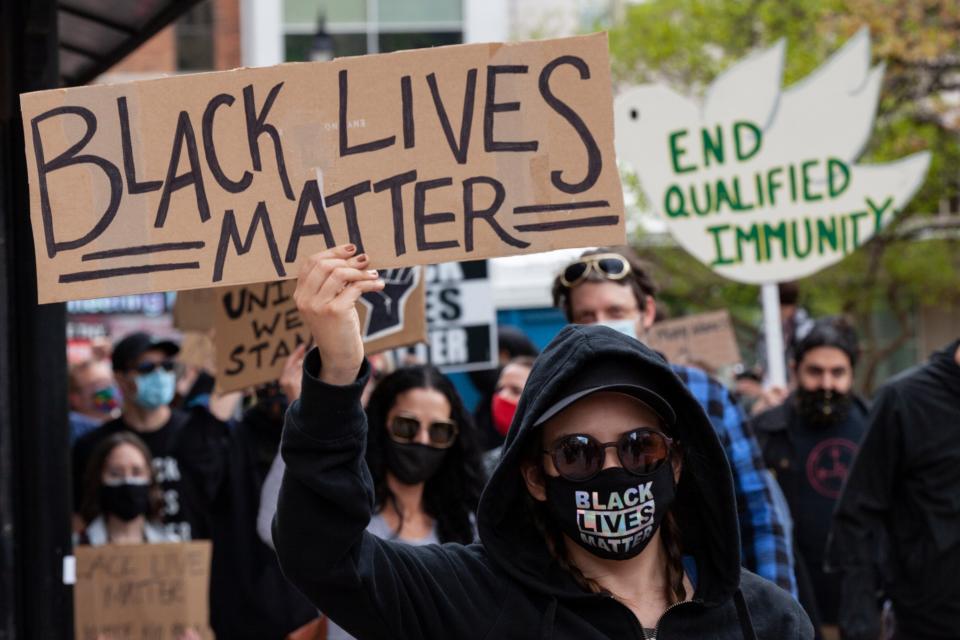GOP pushes record number of anti-protest bills to ‘silence dissent,’ critics say

Following a year of demonstrations against police violence, Republican lawmakers in 34 states have introduced more than 80 anti-protest bills that critics say will have a chilling effect on First Amendment rights as part of a GOP-backed effort to criminalise dissent.
Proposals include immunity for drivers who strike protesters in public streets, blocking convicted protesters from student loan eligibility or unemployment and housing assistance, and turning protest-related misdemeanours into felony crimes.
The International Center for Not-for-Profit Law, which is tracking the bills’ progress, told The New York Times that legislation filed for 2021 legislative sessions more than doubles the number filed last year.
This week, Florida Governor Ron DeSantis signed legislation into law that he called “the strongest anti-looting, anti-rioting, pro-law-enforcement piece of legislation in the country.”
The law enhances criminal penalties for crimes committed during protests that turn violent, including raising protest-related misdemeanour offences to felonies.
“Let’s be clear: this is not an anti-riot bill, regardless of what supporters claim,” Micah Kubic, executive director of the ACLU of Florida, said in a statement.
“The goal of this law is to silence dissent and create fear among Floridians who want to take to the streets to march for justice,” he said. “It should not be a crime to exist in public space, yet that’s exactly what Gov DeSantis has done – criminalised being at a protest just because someone else does something wrong.”
The bill – conflating the right to protest with rioting and looting – mirrors proposals making their way through Republican-dominated legislatures across the US.
While Democratic lawmakers have spent the last several months debating the contours of police reform legislation in the wake of high-profile police killings of Black Americans, Republicans – who have also accused their opponents of silencing conservative views as part of a “cancel culture” war – have cracked down on rights to assembly.
An analysis from The Washington Post found that an overwhelming majority of the millions of people who participated in thousands of demonstrations in 2020 were peaceful.
Bills in Oklahoma and Iowa would grant legal immunity to drivers who strike and injure protesters in the street.
In Indiana, one GOP-backed proposal would prevent anyone convicted of unlawful assembly from holding state employment, including elected office.
Minnesota Republicans have proposed preventing people with unlawful assembly convictions from student loan eligibility or unemployment and housing assistance.
Much of the legislation uses nearly identical language and proposes similar penalties, including third-degree felonies for property damage, injuring a person or obstructing roadways, and second-degree felonies for destroying or toppling monuments.
Lawmakers have also proposed heavy fines and mandatory sentences of up to four years in prison for certain protest-related offences.
During debate last week, Florida state Senator Shevrin Jones told Republicans: “You don’t want us on the streets. You don’t want us to kneel at games. You don’t want us to shut down the streets … Our response to injustice is to protest, but your response is to criminalise it when the recourse for us is to turn to the streets to make our voices heard in this unjust system.”
Read More
After Floyd, Congress ready to plunge into policing laws
DC statehood faces a crossroads with congressional vote
Floyd killing has prompted state reforms, but not everywhere

 Yahoo Finance
Yahoo Finance 